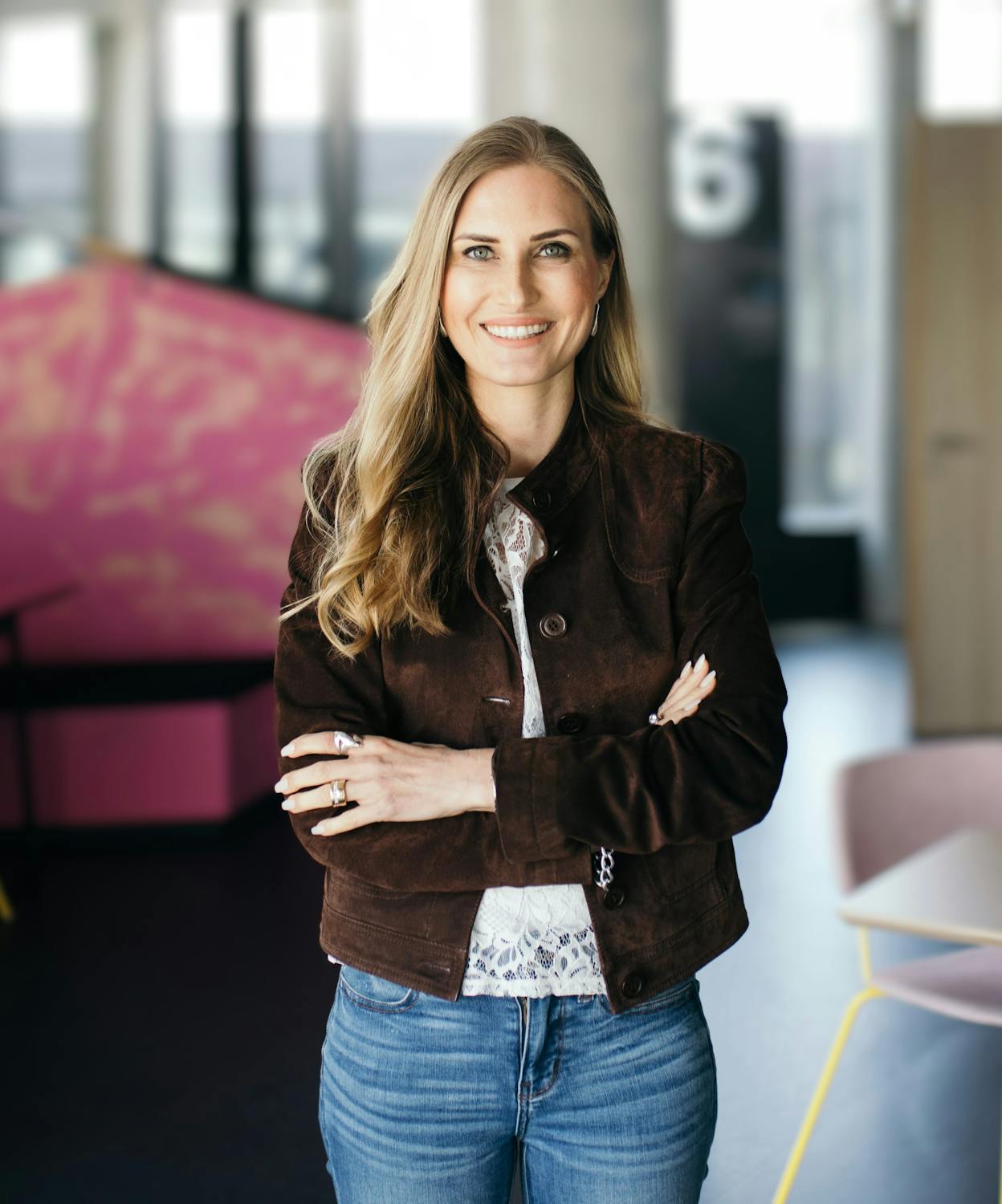Meet Isabelle Baumann, VP Zalando Logistics Solutions
Shaping the future of Zalando’s logistic ecosystem — Introducing Isabelle Baumann.

Having joined Zalando in February 2021, Isabelle Baumann has built and smartened our logistic platform capabilities together with a cross-functional team of engineers, product managers, commercial professionals, and process excellence experts who constantly re-think, optimize and improve our services to partners.
Today, Zalando B2B Logistics Solutions are one of our key strategic priorities in Zalando’s Group Strategy and represent enormous growth potential. The teams behind our business-to-business (B2B) services act as an innovative unit within Zalando, which enables us to act fast. If you want the opportunity to have a major impact in a high-profile team, explore the current job opportunities in Berlin and Stockholm.
We have spoken with Isabelle about her ambitions, her career, and why, in her opinion, Logistics remains an area dominated by men.
Isabelle, what are you responsible for at Zalando?
I joined the company in 2021 to further build the Logistics Platform Capabilities. Since then, we essentially turned our own capabilities, built for the wholesale business, into services that we offer to our partners. The newest kid on the block is multichannel fulfillment where we fulfill orders outside the Zalando channel. Using the infrastructure that Zalando constructed for itself as a basis, we help the merchants to build their logistics solutions. It is a great and smart service. Our vision is to become Europe’s leading logistics ecosystem. We want to unlock partners’ growth by providing flexible fulfillment capacities and full access to our European-wide logistic network.
What attracted you to Zalando? Could you elaborate?
For me, solving a bigger problem makes it very interesting. Zalando offered me the opportunity to build a logistics ecosystem, with different services that the merchants and partners can choose to design their network as they wish. The journey we are on will change the game in the logistics e-commerce industry and enable companies to reach millions of consumers with their products, in a more sustainable way.
Personally, I’m a logistics nerd. And I think it’s such an interesting and exciting area to be in, especially now, when it has become such an integral part of our lives. The impact you can make on consumers’ and partners’ everyday life is amazing. Add the sustainability perspective that comes with building ecosystems, and you can solve things beyond logistics, as the purpose becomes even more meaningful.
How did you become interested in logistics?
Ever since I got my degree in Mechanical Engineering, I’ve worked in logistics. Even my master’s thesis applied to logistics and was dedicated to the manufacture of heavy trucks and buses. My master’s thesis led me to my first job where I worked to implement some of my findings. After a couple of years, I decided to do something completely different, but still within logistics, which brought me into the startup world. In 2006, I built a tech company, which digitized logistics. I was building, I think, one of the first PuDo (Pick up, Drop off) solutions, and, in the process, I learned a lot. After seven years in that company, I decided to go back to more hands-on logistics and joined a big dairy company, where I was responsible for logistics development. A few years in, I went into e-commerce again, joining the largest logistics provider in the Nordics, where I headed business development and digital development. From there, I had a year-long stint at H&M, before being lured away by Zalando.
It was the purpose of the role at Zalando that attracted me. They wanted to build logistics ecosystems, which is something I am tremendously interested in. I love logistics because on the surface everything about it seems easy, but in reality, it’s quite complex, and there are so many different things that you need to take into consideration. And you need to excel in abstract thinking to orchestrate everything beautifully.
Logistics is still an area dominated by men. Why do you think that is?
I think it is strange because, even by conservative standards, wouldn’t you expect women to be great at logistics? After all, haven’t women always been the planners, the organizers? I think the gender gap in logistics has a lot to do with the societal stereotypes we have around gender. I also think that, unfortunately, logistics is one of those areas that are particularly difficult to get into for minority employees. Logistics might feel intimidating because it seems like you are expected to be flawless and knowledgeable from the start. This is, of course, unrealistic — like everywhere else, you learn as you go.
What advice would you give to women working in logistics?
Firstly, know your worth, recognize your strong sides, and cultivate your confidence; find an environment where your achievements will be noticed. Secondly, safeguarding your own integrity is very, very important — stick to your convictions, and know your boundaries. There are companies where you’d be told all sorts of misogynist crap — you don’t have to work for them, and yes, you can push back, if you feel uncomfortable. Thirdly, you can’t always be performing at your best, be easy on yourself, and don’t blame yourself, if you are anything less than perfect. In every career, there comes a time when you have to accept that, for the time being, your performance is just fine. More controversially, perhaps, choose your partner wisely, because your personal life will influence your career.
Last but not least, is there a chance to join you and your team’s vision to become Europe’s leading logistics ecosystem?
Yes, absolutely. We are actively hiring for our offices in Berlin and our brand new office in Stockholm, which we opened in January this year. It’s an exciting opportunity to join our new digital and logistics innovation hub in Stockholm, right from the beginning.
Check out the open positions in Stockholm and apply today!








